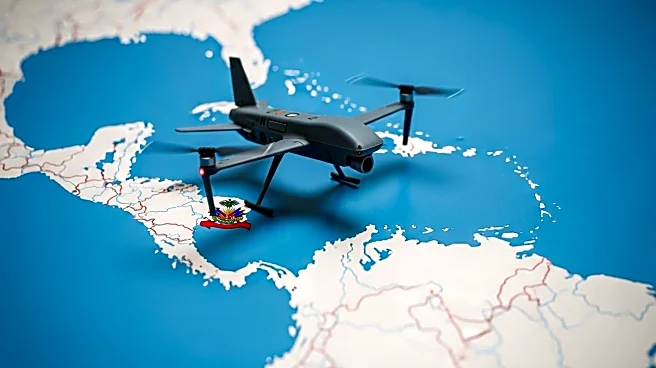What's Happening?
The United Nations Security Council has voted to replace the existing international police mission in Haiti with a larger militarized force aimed at combating armed gangs. This decision comes as the previous Kenya-led police mission failed to regain control over the crisis-stricken nation. The new resolution, proposed by the United States and Panama, calls for a 'gang suppression force' consisting of 5,500 personnel, which is significantly larger than the current multinational security support mission. This force will operate independently of Haitian police and army, with the authority to make arrests and conduct targeted operations against gangs threatening civilian populations and critical infrastructure.
Why It's Important?
The deployment of this militarized force is crucial for Haiti as it seeks to stabilize the country and pave the way for its first presidential and legislative elections in nearly a decade. The gangs have gained control over 90% of Port-au-Prince, leading to widespread violence and displacement. The new force aims to address these issues by providing security and restoring order, which is essential for the country's political and social recovery. However, concerns remain about funding and resource constraints, which have previously hindered similar missions.
What's Next?
The force is set to be deployed for an initial period of 12 months, focusing on counter-gang operations. Key questions remain regarding the deployment timeline, participating countries, and rules of engagement. The success of this mission will depend on sustained funding and international support. The Haitian government has welcomed the initiative, viewing it as a strategic move to curb gang violence. However, skepticism persists among some Security Council members about the mission's potential effectiveness.
Beyond the Headlines
The situation in Haiti highlights the complexities of international intervention in crisis-ridden countries. The history of foreign interventions in Haiti has been fraught with challenges, and the new mission must navigate these issues carefully to avoid repeating past mistakes. The resolution's approval also underscores the geopolitical dynamics within the Security Council, with abstentions from Russia, China, and Pakistan reflecting differing perspectives on international involvement in Haiti.












